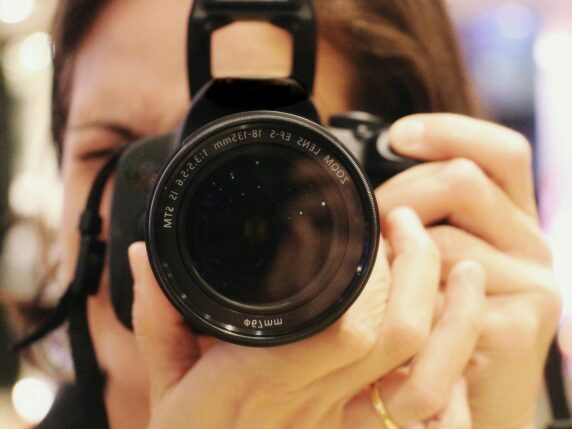If your business develops, trains AI models or relies on generative AI, the High Court’s decision in Getty Images v Stability AI is one that you should pay attention to. The judgment is also of significant importance for the creative industries and brand owners in the UK.
In this decision, the court largely sided with Stability AI, maker of the AI image generation model, Stable Diffusion. Getty Images had accused the company of copying millions of its photos and watermarked content to train its AI model without permission. Getty’s claims included copyright infringement, registered trade mark infringement and passing off.
What the court decided and why it matters
The judge rejected most of Getty’s claims. Due to the fact Stability AI’s Stable Diffusion model was trained in the US, Getty struggled to establish the connection between this activity and the UK for its primary copyright infringement claim to succeed. As a result, it was dropped for jurisdictional reasons.
Once Getty was forced to drop its primary copyright infringement claim, its next argument was that of secondary copyright infringement.
Under UK law, even if the copying of the work took place outside the UK, the importation of an "infringing article" to the UK can constitute copyright infringement.
Getty claimed that the Stable Diffusion model itself is an "infringing article" and as such, offering it in the UK (even if it was trained elsewhere) would mean bringing unlawful copies of Getty's works to the UK.
The judge focused on the literal interpretation of "storing" copies of the works and decided that Stable Diffusion never "stored or reproduced" the works. Stable Diffusion itself cannot be considered an "infringing article" and Getty’s secondary copyright infringement claim also failed.
Getty did win several trade mark infringement claims. Getty successfully argued that Stability AI used their “Getty Images” and “ISTOCK” watermarks “in the course of trade” and “in relation to” the goods/services covered by Getty’s trade marks.
Getty’s claims were upheld for some, but not all, models of Stable Diffusion. Court findings relate to the evidence provided by Getty, and do not include allegations where no real life example of use could be identified by the Court.
Getty’s passing off claim was undetermined because it did not add value to the already decided claims.
It was a narrow victory for Getty, with its successful registered trade mark infringement claims described by the judge as “historic” and “limited in scope”.
What does it mean for AI users and developers?
You can’t assume that the use of AI will not lead to a claim of copyright infringement.
The decision in Getty v Stability AI did not provide an answer to the key claim that was dropped by Getty, namely that of primary copyright infringement in respect of using copyright-protected works for training AI models.
A primary copyright infringement claim would be unlikely to succeed if a sufficient link to the UK cannot be established by the claimant. If, for example, an AI model is trained in the UK, liability for copyright infringement is likely to arise.
An AI model trained outside of the UK and subsequently brought to the UK was decided not to constitute an "infringing article" itself. In terms of secondary infringement of copyright, it would be difficult to argue otherwise unless this decision is successfully appealed. Availability of a secondary copyright infringement claim may depend on the specifics and technical side of an individual AI model in question.
In terms of generative AI, the question remains open, if the output uses a substantial part of the work protected by copyright, an infringement claim may be available against users and/or developers, which would likely be determined on the facts, i.e: it would depend on who is deemed in control of the output.
The grey areas are unhelpful from a business perspective and the preferable solution would be for the UK Government to implement stricter and transparent regulation of AI and copyright protection. It is anticipated this will happen in 2026, following the consultation on copyright and AI.
What can content creators and rights holders learn from this decision?
It has become more difficult for creators to claim copyright infringement in their works in the UK if they were used by AI models trained outside of the UK.
It is also difficult for creators to provide evidence of infringement, as it would require them to track the use of their works by an AI model (regardless of where it was trained or where it operates). The more positive news might relate to circumstances in which such use is apparent, for example, in the context of particularly unique, distinctive works protected by copyright, if their substantial part(s) are clearly copied within generative AI output.
What can brand owners learn from this decision?
Brand owners should remain vigilant in the context of use of their branding, including registered trade marks and unregistered marks, as part of generative AI output. Such use may open doors to a successful claim in registered trade mark infringement and/or passing off.
This consideration should also be noted by AI users and developers who ought to ensure AI input and its output do not contain signs that can be legally protected, and they should not use any such content in the course of trade or for business purposes.
Terms of use and licensing
Businesses that rely on licensing content protected by copyright, for example, stock images, video, software, or data, should review if and how their terms of use and licenses address AI use and cross-border exploitation of such works.
It would be a good idea to consider implementing “AI-safe” licences that spell out the scope of permitted use, as well as stronger indemnities and audit rights in commercial supply agreements requiring the parties to keep an adequate record of use of the works to ensure compliance with the terms of the agreement.
What happens next?
Gosia Evans, Senior Intellectual Property Solicitor at Harper James comments:
The decision stops short of answering the big question, should training AI models using works protected by copyright be lawful in the UK? We need the UK Government to urgently regulate AI use in a manner that is practical, forward thinking and comprehensive and that does not compromise or remove copyright protections that are vital for creative industries in the UK to thrive.
The creative market is hugely significant to the UK economy. Getty’s own statement on the judgment calls on the governments worldwide to ‘establish stronger transparency rules which are essential to prevent costly legal battles and to allow creators to protect their rights’ and as a professional intellectual property adviser, I could not agree with this appeal more.






